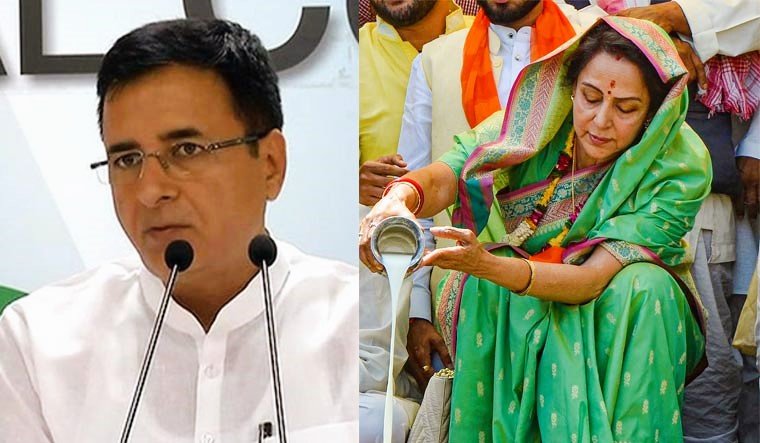A dispute has arisen following comments made by Congress leader Randeep Singh Surjewala that were deemed “misogynistic and sexist” towards BJP MP Hema Malini, prompting a swift condemnation from the BJP. This incident sheds light on the larger problem of misogyny within Indian political circles.

Amit Malviya, the head of BJP’s IT cell, posted a video on X without a specified date, where Surjewala is allegedly seen making inappropriate comments about the actor-turned-politician during a public gathering. Amit Malviya took to X and said, “Congress MP Randeep Surjewala makes a vile sexist comment, that is demeaning and derogatory, not just for Hema Malini, who is an accomplished individual, but women in general.”
Mathura MP Hema Malini, the actor-politician, emphasized the importance of Opposition leaders learning to respect women by taking inspiration from Prime Minister Narendra Modi. Prior to filing her nomination for the Lok Sabha election in the sacred town, she expressed her concern that the Opposition tends to focus their criticism on individuals who are well-known and popular. This strategy is employed as targeting those who are less popular would not yield any favourable outcomes for them. Hema Malini believes that Opposition leaders should follow the example set by PM Narendra Modi in terms of respecting women.
Derogatory comments targeting women in Indian politics have been a persistent issue, and this problem is not limited to recent times. The animosity between Jaya Prada and Azam Khan, which has spanned over a decade, has further intensified due to Khan’s offensive remarks against Prada. Initially, Jaya Prada and Azam Khan were allies, but their relationship deteriorated when Prada served as a Member of Parliament for the Samajwadi Party (SP) and Khan held a position as a minister in Uttar Pradesh. The deterioration of their once-cooperative bond occurred during the 2009 Lok Sabha elections, resulting in acrimonious confrontations and reciprocal accusations.

